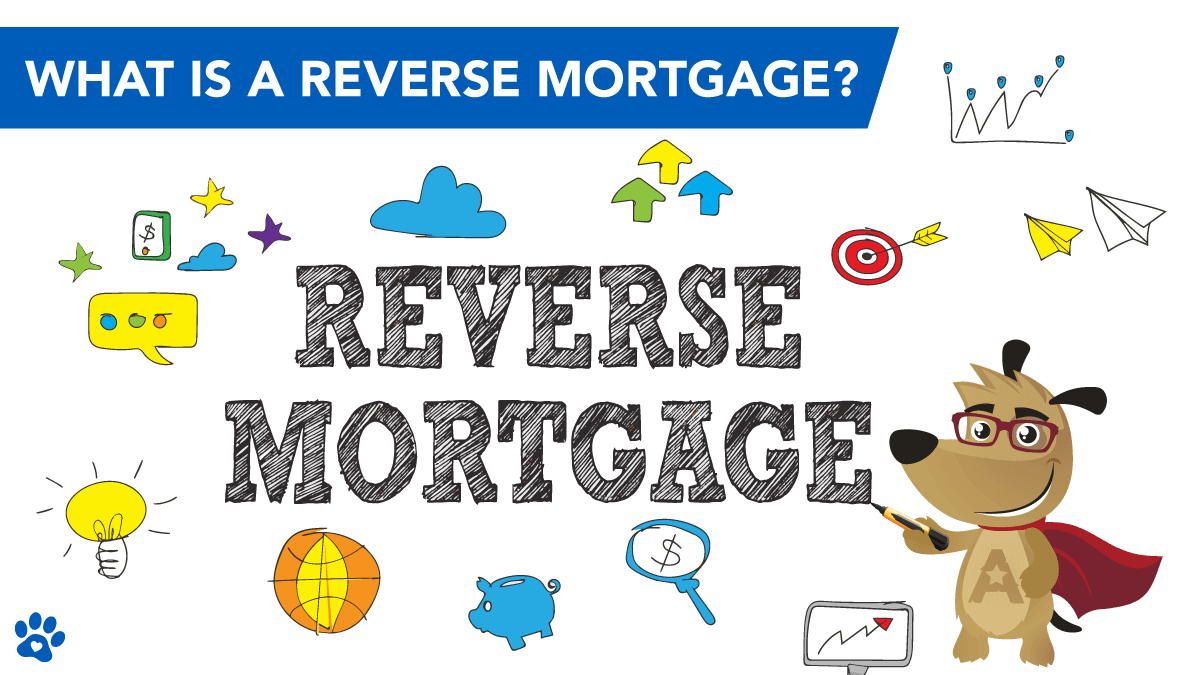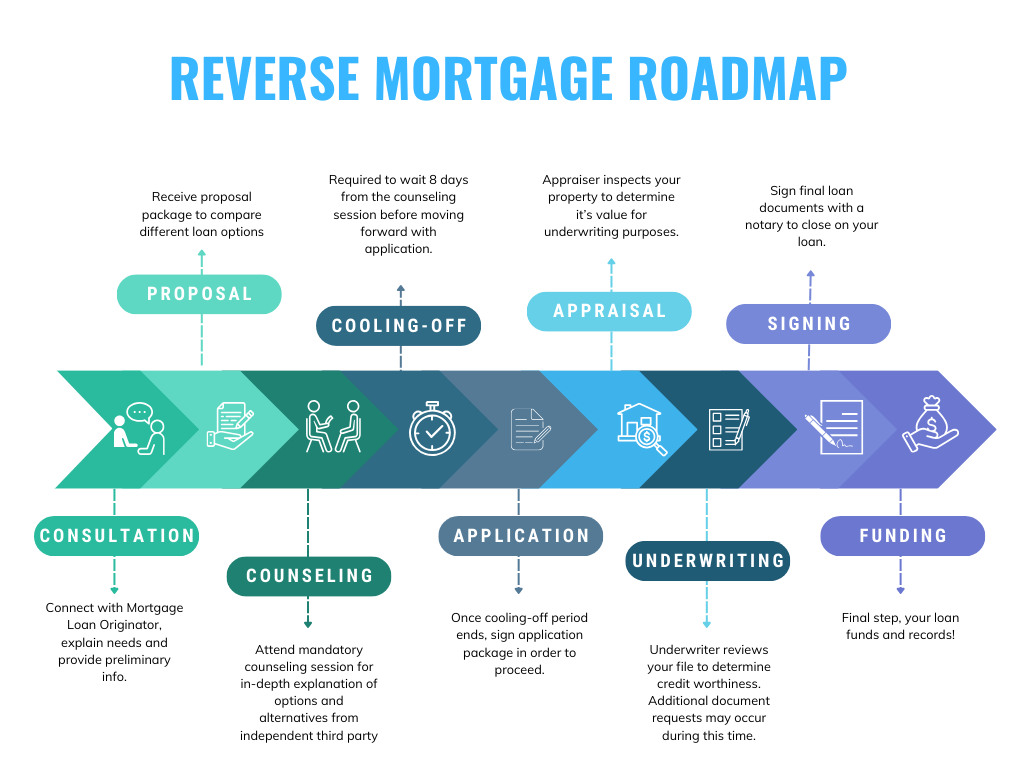Why More Homeowners Are Deciding to Purchase Reverse Mortgage
Why More Homeowners Are Deciding to Purchase Reverse Mortgage
Blog Article
Unlock Financial Freedom: Your Overview to Acquiring a Reverse Mortgage
Recognizing the ins and outs of reverse mortgages is essential for home owners aged 62 and older looking for economic liberty. As you consider this alternative, it is crucial to grasp not only how it functions yet additionally the effects it might have on your monetary future.
What Is a Reverse Home Loan?

The basic charm of a reverse home mortgage hinges on its possible to enhance economic flexibility throughout retired life. House owners can use the funds for different objectives, including clinical expenditures, home enhancements, or daily living prices, thus offering a safety and security net throughout a critical point of life.
It is important to comprehend that while a reverse home mortgage enables enhanced cash circulation, it also reduces the equity in the home with time. As interest collects on the superior car loan equilibrium, it is essential for potential customers to very carefully consider their lasting financial plans. Consulting with a monetary expert or a reverse mortgage specialist can provide useful understandings right into whether this option straightens with a person's monetary goals and conditions.
Eligibility Needs
Recognizing the eligibility needs for a reverse mortgage is crucial for homeowners considering this monetary choice. To qualify, applicants should be at least 62 years old, as this age standard permits elders to accessibility home equity without month-to-month home mortgage repayments. Furthermore, the house owner needs to occupy the residence as their primary dwelling, which can consist of single-family homes, particular condos, and produced homes meeting specific standards.
Equity in the home is an additional crucial demand; house owners normally need to have a considerable amount of equity, which can be established via an evaluation. The amount of equity available will straight influence the reverse home mortgage quantity. Applicants need to demonstrate the capacity to preserve the home, consisting of covering home taxes, house owners insurance, and upkeep costs, making sure the residential or commercial property continues to be in great problem.
Additionally, possible debtors have to go through an economic assessment to examine their income, debt history, and overall monetary situation. This evaluation aids lenders figure out the applicant's capability to fulfill ongoing responsibilities associated with the residential or commercial property. Fulfilling these needs is important for safeguarding a reverse mortgage and guaranteeing a smooth economic change.
Advantages of Reverse Home Mortgages
Various advantages make reverse home mortgages an enticing choice for elders aiming to improve their economic adaptability. purchase reverse mortgage. One of the main benefits is the capacity to transform home equity into money without the demand for regular monthly home mortgage payments. This feature enables senior citizens to accessibility funds for numerous demands, such as this content clinical expenses, home enhancements, or daily living expenses, consequently alleviating financial tension
Furthermore, reverse home loans supply a safeguard; elders can proceed to stay in their homes for as lengthy as they fulfill the finance needs, promoting security throughout retirement. The proceeds from a reverse home loan can likewise be utilized to delay Social Security advantages, possibly leading to higher payments later on.
Moreover, reverse home loans are non-recourse finances, indicating that borrowers will certainly never ever owe greater than the home's worth at the time of sale, securing them and their beneficiaries from financial responsibility. The funds gotten from a reverse mortgage are usually tax-free, adding an additional layer of monetary relief. In general, these benefits placement reverse home loans as a practical solution for senior citizens looking for to improve their economic circumstance while keeping their treasured home setting.

Expenses and Costs Included
When considering a reverse home loan, it's necessary to know the different prices and costs that can impact the general monetary image. Understanding these costs is vital for making an educated decision about whether this monetary item is ideal for you.
Among the key costs related to a reverse home loan is the source cost, which can differ by lending institution but generally ranges from 0.5% to 2% of the home's assessed value. Furthermore, home owners should anticipate closing costs, which may include title insurance, appraisal fees, and credit history record fees, normally totaling up to numerous thousand bucks.
One more considerable cost is home loan insurance coverage premiums (MIP), which protect the lender versus losses. This cost is generally 2% of the home's worth at closing, with a continuous annual premium of 0.5% of the remaining lending balance.
Last but not least, it is very important to take into consideration continuous expenses, such as residential property taxes, property owner's insurance, and upkeep, as the debtor index stays responsible for these expenses. By meticulously examining these expenses and fees, homeowners can much better examine the monetary implications of pursuing a reverse home mortgage.
Steps to Obtain Started
Getting going with a reverse home mortgage includes numerous essential actions that can help simplify the process and guarantee you make informed decisions. Initially, assess your monetary situation and figure out if a reverse this website home mortgage aligns with your lasting goals. This includes assessing your home equity, existing debts, and the requirement for added income.
Next, research study numerous lenders and their offerings. Search for reputable institutions with positive evaluations, clear cost structures, and competitive rate of interest prices. It's important to compare terms to discover the ideal suitable for your demands.
After selecting a loan provider, you'll need to complete an in-depth application procedure, which commonly requires documentation of income, assets, and residential property information. Take part in a therapy session with a HUD-approved therapist, that will certainly give understandings right into the effects and duties of a reverse mortgage.
Conclusion
In final thought, reverse home loans present a viable option for seniors looking for to improve their monetary stability throughout retirement. By converting home equity into easily accessible funds, home owners aged 62 and older can address numerous financial needs without the pressure of month-to-month payments.
Understanding the ins and outs of reverse home loans is crucial for house owners aged 62 and older seeking economic flexibility.A reverse mortgage is an economic product developed largely for house owners aged 62 and older, allowing them to convert a part of their home equity right into cash - purchase reverse mortgage. Consulting with a reverse mortgage or a monetary advisor professional can offer valuable understandings right into whether this option straightens with a person's economic objectives and circumstances
Furthermore, reverse home loans are non-recourse financings, meaning that borrowers will certainly never owe more than the home's worth at the time of sale, safeguarding them and their heirs from economic obligation. In general, these benefits placement reverse home loans as a practical remedy for senior citizens looking for to improve their financial scenario while preserving their treasured home environment.
Report this page